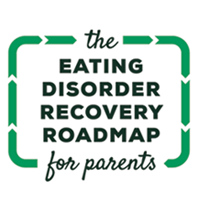What is a Registered Dietitian Nutritionist (RDN)?
A Registered Dietitian Nutritionist (RDN) is a food and nutrition expert who has met academic and professional requirements. RDNs are uniquely qualified to translate the science of nutrition into practical solutions for improved health. The following criteria are required for RDNs:
- Completed a minimum of a bachelor’s degree at a US regionally accredited university or college and course work accredited or approved by the Accreditation Council for Education in Nutrition and Dietetics (ACEND) of the Academy of Nutrition and Dietetics.
- Completed an ACEND-accredited supervised practice program at a combination of a health-care facility, community agency, and or a foodservice corporation. Typically, a practice program will run six to 12 months in length and include 1,000-1,200 practicum hours.
- Passed a national examination administered by the Commission on Dietetic Registration (CDR).
- Completed continuing professional educational requirements (75 credits every 5 years) to maintain registration.
How is a Dietitian different from a Nutritionist?
All Dietitians are Nutritionists but not all Nutritionists are Dietitians. Since there is no legal definition for the title “Nutritionist”, anyone can call themselves a nutritionist. However, this does not necessarily mean that one is better than the other, it just means that the two may have different trainings and/or approaches. A Nutritionist may have as little as 6 weeks of nutrition training or as much as 5 years or more of extensive training. A RDN is a nationally recognized term and a nutritionist is not. To understand more: Registered Dietitian vs. Nutritionist
What can I expect when I come for my first visit?
At your first appointment, we will discuss your nutrition, health and lifestyle goals. I will listen to your history, symptoms and challenges as well as your eating habits and supplementation regimen. We will come up with a direction of care that helps meet your needs/goals that includes nutrition and lifestyle interventions, as well as possible supplementation. My goal is to have you experience greater wellness and improved health.
Do I need to bring anything with me to my first visit?
Please make sure you fill out the intake paperwork that I sent you when you signed up for your initial nutrition consult. Please bring any supplements you are currently taking along with past lab results that are relevant to your current nutrition issue. Family members, friends or significant others are welcome to join you in your nutrition consult if you wish. I look forward to meeting with you!
Can I use my insurance?
I currently do not accept any health insurance for my services. I would be happy to provide you with a superbill at the time of service with diagnostic codes and procedure codes that you can submit to your insurance company.
Where are you located?
I am located at 1949 Pearl Street, Boulder, CO 80302. My office is located in the Foundation Health medical practice. I am on the first floor.
Where can I park?
Foundation Health, the medical practice I am co-located with, has 4 designated “Foundation Health” parking spots in the alley behind the building. You are allowed to park in any of those parking spots at any time. You can also park on the street, as there is usually easy to find parking spots on the street around the office. Most street parking is for 2 hours and no payment is required.
What is your cancellation policy?
I ask that you provide me 24 hours notice for cancellation of services. If you are not able to do this, you will be charged in full for your appointment. Of course, if there are extenuating circumstances, I am happy to make acceptations.
What are your rates?
Please contact me at: [email protected] or call me at 303-953-4111 for a list of prices for services.
What is the best way to communicate with you?
The best way to communicate with me is through my secure portal. The portal is HIPAA compliant and protects the privacy of your nutrition and healthcare information and communication. You will get access to my portal when you sign up for an initial consult. You can also contact me through my email at: [email protected]; however, just know that email communication is not HIPPA compliant, so please do NOT send confidential information via email.
Why is a Dietitian an important part of an Eating Disorder team?
A dietitian is an integral part of a multi-disciplinary eating disorder’s treatment team. Most eating disorder treatment teams consist of a medical practitioner, psychologist/therapist and a dietitian, but may also include other specialties such as a physical therapist, an art therapist or life coach. A dietitian communicates regularly with other members of an eating disorder team in order to provide appropriate care and support. A dietitian’s role is to explore, challenge and assist their clients with distorted and irrational thinking about food and weight. Dietitians also help clients by exploring feelings related to hunger, fullness and metabolism, in addition to issues related to society, diet culture and body image. The role of exercise and movement is always part of the scope of treatment and is considered when making dietary recommendations and lifestyle interventions.
What is the difference between a food allergy, food intolerance and food sensitivity?
There are three main types of adverse food reactions, each being very different and each having very different biological pathways:
1) Food allergies: Food allergies involve the immune system. They occur when the body creates IgE antibodies to a food, which then triggers the release of histamine and other pro-inflammatory mediators from mast cells (located in your tissues). These reactions are typically immediate, occurring within minutes or hours and can affect multiple organs. Even the smallest exposure to a food can trigger a reaction. Allergic reactions happen every time a trigger food is ingested, and the reaction can be potentially life-threatening. An example of a food allergy would be a peanut allergy or shellfish allergy that causes swelling, hives, and difficulty breathing.
2) Food intolerances: Food intolerances are non-allergic/non-IgE mediated food reactions that do not involve the immune system. They occur when the body lacks the digestive enzymes needed to break down a certain food. Symptoms of a food intolerance can take longer to appear than symptoms of allergies and can be varied in their symptoms including bloating, migraines, irritable bowel or fatigue. An example would be lactose intolerance, in which the body cannot break down the milk sugar lactose, causing bloating and diarrhea. Food intolerances can also occur due to direct pharmacological effects of chemicals, like histamine or caffeine.
3) Food sensitivities: Food sensitivities DO involve the immune system, but they do not involve IgE antibodies. Instead, they occur when circulating white blood cells, known as lymphocytes or granulocytes, react to a food or chemical resulting in the release into the bloodstream of pro-inflammatory chemicals called “mediators”. These mediators can cause inflammatory symptoms throughout the body and are often delayed, up to 24-48 hours, and can be dose dependent. An example of a food sensitivity would be a corn or wheat sensitivity that causes bloating, abdominal pain, achy joints and muscles, and even brain fog that occurs one to two days after consuming the food.
Unfortunately, the medical community has not come to a consensus on the exact definition of “food sensitivity”. Because of this, you will often hear this term used in different and confusing ways and may be used interchangeably and inaccurately with food allergy or food intolerance.








